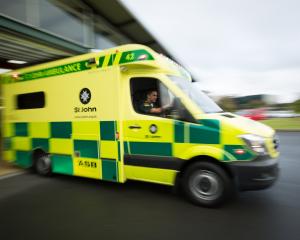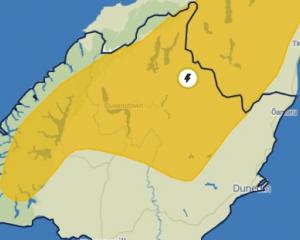
It follows new information gathered by conservation group WWF that shows virgin sea bed covering an area three times the size of Auckland has been trawled over the past decade.
About three quarters of this new bottom trawling was in the inshore fisheries.
WWF New Zealand ocean programme manager Lucy Jacob said bottom trawling was the underwater equivalent of bulldozing an entire area.
"On the seafloor, particularly around sensitive habitats such as seamounts, we have very delicate, fragile, amazing ecosystems that we don't really understand and that includes a lot of corals and sponges," she said.
The Climate Commission's report on laying out the road map to net zero emissions by 2050 noted the importance of understanding the quantity of carbon stored or released for emissions budgets and targets.
However, it is not yet included in domestic or international reporting, and the commission said more limited long-term data was needed.
Jacob said there needed to be more research to identify where these 'blue carbon' stores are located.
"We don't know what the pathway for that could be into the atmosphere but we do know that it increases the acidity of the ocean which is already an impact of global warming, and also potentially reduces the capacity of our ocean to absorb atmospheric carbon which is one of the ways our ocean buffers against the impacts of climate change."
Green's oceans and fisheries spokesperson Eugenie Sage agreed.
"Bottom trawling is leading to a lot more mobilisation of carbon. The ocean floor is the world's largest carbon storehouse so we must leave the seabed undisturbed."
Sage wanted the government to act quickly to protect seamounts as a priority, before moving to restrict trawling in areas where it was already taking place.
The government had already announced that in the Hauraki Gulf it would limit bottom trawling to specific corridors and phase it out in the rest of the gulf.
But both WWF and Sage want a phasing out of all bottom trawling.
Environment Minister David Parker offered a compromise instead.
"We've said that we aren't going to completely phase out bottom trawling, but I do think they do raise a good intermediary idea, which is whether we should limit bottom trawling to areas that have previously been trawled," he said.
Methods of bottom trawling needed to be improve to reduce the environmental impacts, he said.
Comments
I say phase out bottom trawling entirely. Along with nets or any non-targeted harvesting method. Anything that catches everything then dumps the 'waste' is a terrible way to fish. You wouldn't chop down a forest to catch a few deer. You should bottom trawl an seabed to catch some fish.
All bottom trawling should be phased out as soon as possible. It is time to start rewilding our oceans. If we are to have a hope of keeping global warming to a minimum it is essential that we reverse the decline of our natural world.












